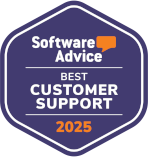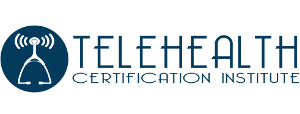
You need a trustworthy platform when bringing your patients’ health records online. Here, we answer some frequently asked questions about EHR for psychologists and how to implement this software successfully in your practice.
Electronic health records (EHRs) have existed since the dawn of computing, but they have only recently become ubiquitous with the advances in data security. If your practice has yet to switch to EHR, or you’re looking to upgrade your EHR software, you likely have questions.
We have gathered some of the most common questions we get from our clients and answers that will help you decide which software platform is best for your practice.
What Is EHR Software?
An electronic health record is a digital version of a paper file. Storing patient information online is a more effective way to maintain medical information, making it available at any time to authorized users. EHRs typically include:
- Appointment history
- Demographics
- Medical history
- Medications
- Diagnoses
- Test results
- Treatment plans
- Notes
- Other relevant information
What Are the Key Benefits Of EHRs?
Having patient records available at your fingertips has many benefits. Not only does it save time spent physically locating a record in a huge file room, but it also gives you the flexibility to add more information to each record than you would be able to if it were still in paper form.
EHRs for psychologists can help your practice:
- Provide a better quality of care
- Reduce delays in treatment
- Increase data security
- Improve workflow
- Improve communication
What Factors Should You Consider When Choosing EHR Software?
You have many options once you’ve decided to start using EHR software or upgrade your current software. It’s crucial to your practice that you know what to look for to find the best fit for you and your patients.
CounSol.com offers EHR software that is customizable to meet your unique clinical needs. Look for these additional features before making your decision:
- Secure messaging
- Appointment reminders
- Custom forms and questionnaires
- Secure client records and notes
- Client treatment plans
- Client progress notes
- Client scheduling and calendar
- Secure live video sessions
- Secure client chat
- Client billing and invoicing
- Electronic insurance claim submission
- Online appointment booking
- And more
How Does Electronic Health Records Software for Psychologists Protect Patient Privacy?
Data breaches, malware, and phishing are unfortunate and common occurrences as technology improves and bad actors become more sophisticated. So, how can you ensure your patients’ data remains under virtual lock and key? EHRs are encrypted to prevent an individual, bot, or hacker from accessing the files.
Files are encrypted before they are transmitted and remain encrypted on our secure servers so only authorized users can access them. This practice makes transferring sensitive patient data much more secure than traditional paper files that are only protected by envelopes and the trust of third parties.
How Does EHR Software Impact The Patient Experience?

EHR software for psychologists improves patients’ quality of care and patient outcomes. Instantly having all records on hand helps reduce medication errors and unnecessary investigations, improving communication and interactions among primary care providers, patients, and other providers involved in care.
Trust CounSol.com For Your EHR Software Needs
Our partners rely on us to create customized EHR solutions that help to streamline their practices. Here’s what one satisfied client says about her experience with our team:
“I view CounSol.com as a valuable investment for my counseling practice. CounSol’s customer service is top-notch. I’m very pleased with this service, and recommend CounSol with confidence!” Dr. Grace Malonai, LPCC
Contact us today to get started.




